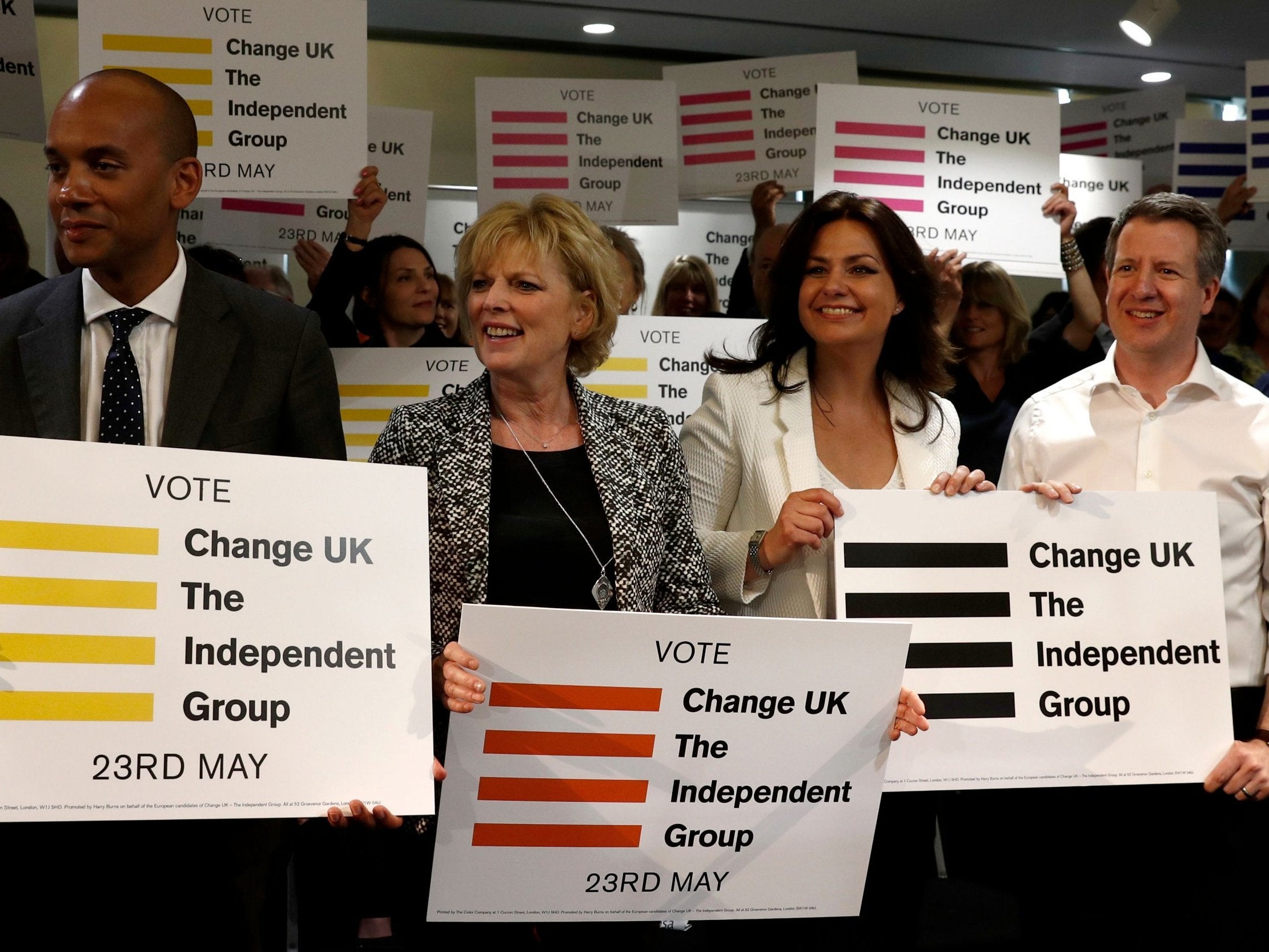Why did Change UK perform so badly in the European elections while the Lib Dems and Greens made gains?
Politics Explained: The new party won just 3.4 per cent of the vote and failed to gain a single MEP


While other parties with a clear message on Brexit poached huge numbers of voters confused and frustrated by the ambiguous positions of the Tories and Labour, Change UK struggled to reach 3.4 per cent and did not gain a single MEP.
So why did the new party’s consistent message on the need for a second Brexit referendum fail to attract the millions of Remain voters who showed themselves ready to break with previous political allegiances?
One reason may have been confusion over their name itself. After establishing themselves as the TIGgers – The Independent Group – on defecting from Labour and the Conservatives in February, the group of 11 MPs was barred by election watchdogs from using a title which could confuse them with other independent candidates in the European polls, and had to dream up the Change UK tag in little more than 24 hours.

In contrast to the clear message sent by the Brexit Party’s name– along with a party symbol featuring an arrow pointing to the place where Leave voters should mark their X – the Change UK title and bland four-bar logo said little to voters about what the party stood for.
And rather than fighting the election on the single issue of Brexit, as Mr Farage did, Change UK published a manifesto of hastily drawn-up policies ranging over topics which barely featured in the election debate.
While the party gained publicity by unveiling broadcaster Gavin Esler and Boris Johnson’s sister Rachel as candidates, the high-profile names risked reinforcing the notion that Change UK represented a metropolitan liberal elite with little in common with ordinary voters.
Their position was not helped by Ms Johnson’s later comments about joining “a sinking ship”. And interim leader Heidi Allen flirted openly with the idea of some form of future collaboration or alliance with the Lib Dems – the big winners with Remain voters in the EU election, along with the Greens.
The party was blamed by Lib Dems for the failure to form a joint Remain platform for the European polls. And the regional list system used in Britain made local tactical voting deals between like-minded parties impossible.
Despite signing up 100,000 supporters online, Change UK did not have the financial resources available to Sir Vince Cable’s party or the network of councillors and activists to knock on doors and deliver leaflets.
And the Lib Dems entered the fray fresh from a morale-boosting performance in local elections earlier in the month, when they gained more than 700 new councillors.
In the end, opponents of Brexit were forced to choose between a number of options. And when they did, most of them went for the Lib Dems.
Join our commenting forum
Join thought-provoking conversations, follow other Independent readers and see their replies
Comments